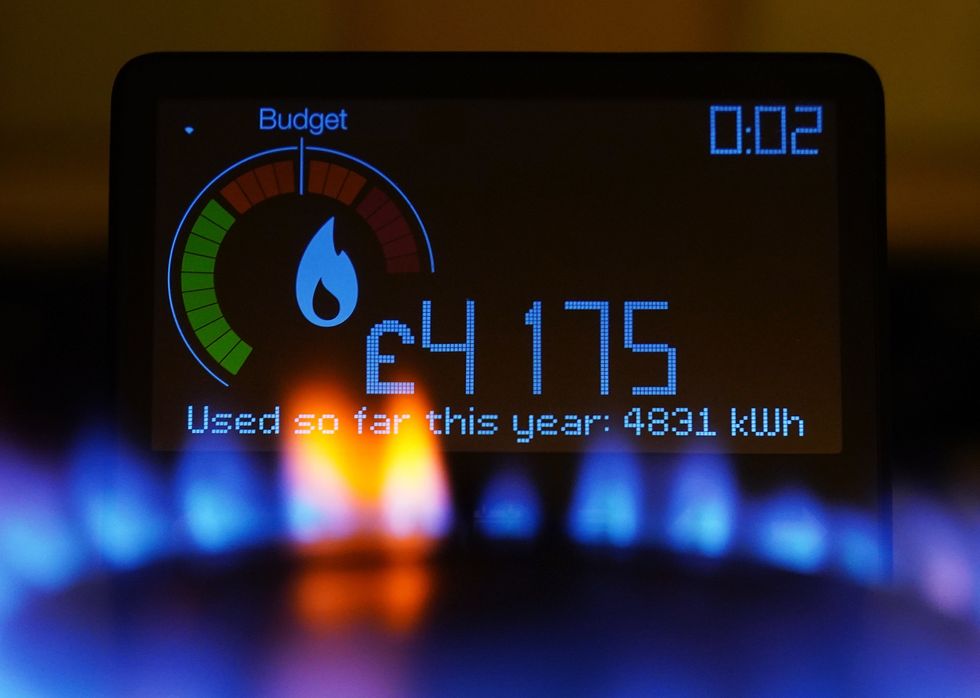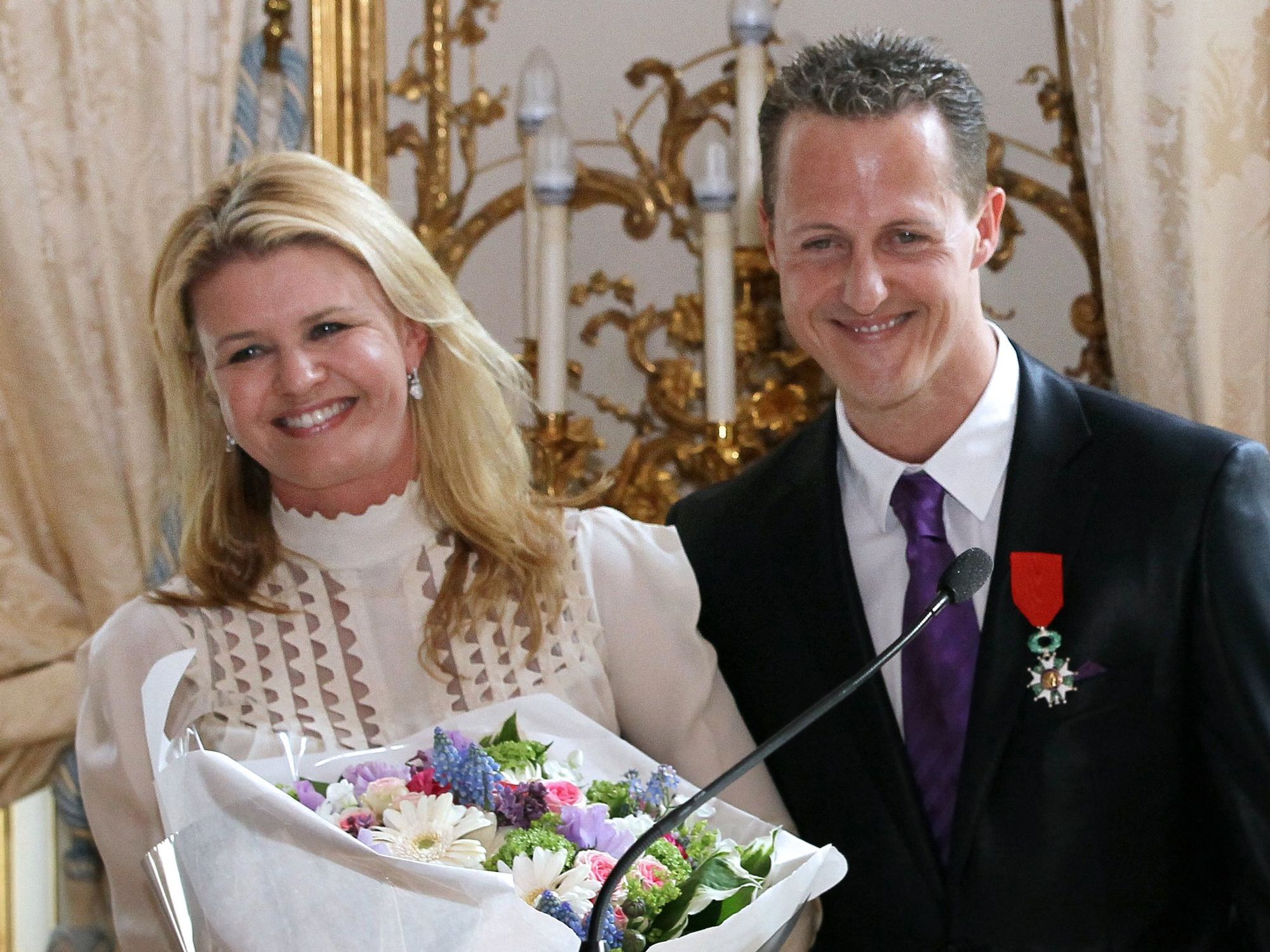From electric blankets to standby appliances - 8 common energy savings myths debunked as it could be costing you

Energy costs are now more than 50 per cent higher than pre-Covid levels for those paying by direct debit
Don't Miss
Most Read
Latest
With energy bills set to rise again this January, experts have debunked common energy savings myths so Britons can understand which ones can really make a difference.
Regulator Ofgem has announced that someone paying their energy bills by direct debit and using a typical amount of gas and electricity will pay £1,738, or £21 a year more from January.
The latest price cap adjustment, affecting 26 million households across England, Wales and Scotland, marks the second increase this winter.
As temperatures drop and heating costs soar, homeowners are increasingly seeking ways to reduce their energy consumption and manage rising bills.
However, many common energy-saving tips circulating online may be doing more harm than good, with experts warning against following outdated or ineffective advice.
A new survey by David Wilson Homes has revealed that 78 per cent of homeowners are actively searching for innovative ways to reduce their energy costs as winter approaches.

Energy costs are now more than 50 per cent higher than pre-Covid levels for those paying by direct debit
| PAHowever, the research also found that nearly half of respondents (48 per cent) are confused about which energy-saving methods are truly effective.
To address this widespread uncertainty, David Wilson Homes' Group Technical Innovation Manager, Danielle Michalska-Morris, has examined eight common energy-saving myths that circulate online.
- Using an electric blanket or space heater is cheaper than putting the heating on
A significant 44 per cent of surveyed homeowners believe using electric blankets or space heaters is cheaper than central heating. However, Michalska-Morris explains that while these devices may seem cost-effective initially, they only heat one area and can be expensive when used extensively.
A 2kW fan heater costs approximately 49p per hour at full power, potentially adding £13.72 to weekly bills if used for four hours each evening. In comparison, heating an entire house with a 24kW gas boiler costs around £2.00 per day.
She said: “For those that feel the cold, a good alternative to electric blankets and space heaters is a traditional hot water bottle, which means you only have to boil the kettle.”
LATEST DEVELOPMENTS:
- REVEALED: Britain's 'below the radar' plan to help Ukraine defeat Putin without sending a single missile
- 'I'm a GB News Member - here are three ways you can ensure the channel's survival and defend free speech'
- POLL OF THE DAY: Do you want another General Election now? VOTE NOW
- Britain must enact a Trump-style mass deportation policy...and I have a plan for going about it - Adam Brooks
- Closing the curtains or blinds during the daytime
Another common misconception, believed by 40 per cent of homeowners, is that keeping curtains closed during daylight hours saves energy. However Michalska-Morris explains it's better to keep curtains open during sunny days to benefit from solar gain, only closing them at sunset to retain heat.
“Once the sun begins to set in the early evening, you should then close the curtains or blinds to retain the heat emitted during the day. Another trick is to layer curtains over blinds or shutters to help manage heat loss in the evening, ” she said.
- Leaving appliances on Standby saves on energy
The study also revealed that 20 per cent believe leaving appliances on standby saves energy - a myth that could actually increase bills by nine to 16 per cent monthly.
- Putting aluminium foil behind radiators will reflect more heat into the room
Despite 37 per cent of homeowners believing aluminium foil behind radiators helps reflect heat, Michalska-Morris warns this solution quickly degrades and is likely to fall off.
Purpose-made radiator reflector panels, though more expensive at around £20, could be a more effective solution.
- Using a microwave instead of the oven to cook
Another myth, believed by 34 per cent of respondents, suggests microwaves are always more energy-efficient than ovens.
While microwaves use less power for small meals, they may take longer and cook unevenly for larger portions, which could cause food poisoning.
Michalska-Morris said: "It’s better to consider which appliance is most suited to the meal you are cooking and take a mindful approach.
"Many air fryers, slow cookers, and pressure cookers are great alternatives to the oven, so using these instead may save you money and use less energy."
6. Keeping heating low all day uses less power
A particularly persistent myth, believed by 33 per cent of homeowners, is that keeping heating low all day saves energy.
This isn't typically true for traditional gas boilers, which use more energy maintaining constant temperatures than when turned on and off as needed.
However, air source heat pumps may work more efficiently when maintaining steady temperatures rather than cycling on and off.
7. Running a dishwasher half-full to save water
While 14 per cent of homeowners believe running a half-full dishwasher saves water and energy, Michalska-Morris says this is inefficient.
Half-load programmes use only slightly less resources than full loads, making it more economical to wait until the dishwasher is full and use eco-settings when possible.
8. Painting radiators black will heat a room faster
Perhaps the most unusual myth, believed by 10 per cent of respondents, is that painting radiators black increases heat output.
According to Michalska-Morris, the colour of radiators has minimal impact on heating efficiency, with no more than one per cent difference between black and white radiators.










